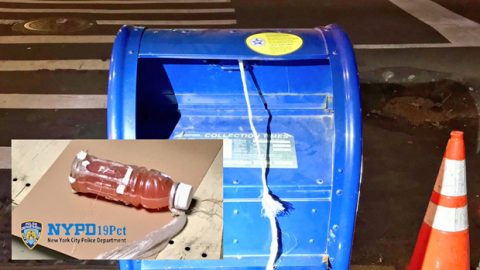It’s more than a little frustrating to see it come to this, but a Coalition of For-hire Vehicle (FHV) industry organizations was forced to sue the New York City Taxi and Limousine Commission (TLC) to prevent enforcement of its 25% Wheelchair Accessible Vehicle (WAV) rule in March. Considering the fact that the TLC’s mandate would force FHV bases to dispatch what will become 25% of all trips in WAVs in a few short years, regardless of whether the customer asks for one or not, what choice did they have? It’s not only a kick in the gut to bases that are already struggling with a badly broken system, it seems pretty much impossible to achieve.
Let’s not forget that the Coalition also presented a far more realistic and workable plan. The TLC approved the plan but then refused to remove a “poison pill” provision that would allow them to shut it down on a whim. Now, people who have been struggling to stay afloat in the worst environment the NYC FHV industry has ever seen are being forced to spend a significant amount of money on what seems an awful lot like an unnecessary lawsuit. If the TLC had just been a little more reasonable and given the Coalition plan a chance, without the fear that their multi-million-dollar investment could get yanked at any moment without cause, I’d be writing a different editorial this month. So it goes…
As Ira Goldstein explains in his column this month, the FHV Coalition is still negotiating with the TLC on a Memorandum of Understanding (MOU), but everything remains in a state of suspended animation because the TLC has refused to remove that poison pill provision. That, by the way, means that people requiring WAVs will most likely end up waiting longer than they should for the service that they need and deserve.
In the absence of a settlement, a hearing will be held on April 16 on the case. So, assuming it hasn’t been resolved and you are reading this before April 16, I would ask EVERYONE to mark that date on their calendar because the FHV Coalition needs your presence at the hearing. As Ira said, “We need a ‘standing room only’ crowd, to show the judge just how many New Yorkers are prepared to step up to help protect their industry and their fellow drivers.”
The Coalition’s attorneys – McElroy, Deutsch, Mulvaney & Carpenter, LLP (MDM&C) – filed the lawsuit in the United States District Court Southern District of New York in Manhattan, “seeking injunctive relief against the TLC on behalf of the For-hire Vehicle industry,” according to a press release from the law firm. “The FHV industry’s lawsuit seeks to overturn amendments to TLC Rule 59 which, if enacted, are estimated to impose more than one billion dollars in compliance-related costs on [drivers and base owners]. The short-term expense for interim compliance [in the first year alone] is expected to top $300,000,000. The suit challenges the TLC’s authority to amend Rule 59 as unconstitutional and in violation of federal regulations that exempt taxi service providers from making what Congress has found to be an unreasonable accommodation.”
The TLC’s new regulations are set to go into effect on July 1, 2018, which will be here in the blink of an eye.
The law firm’s press release went on to say the following: “The FHV industry has consistently sought to improve wheelchair accessibility, and in September 2017 proposed that the TLC consider adoption of a Central Dispatch System – to be fully funded by the FHV industry – designed to ensure that wheelchair-bound customers are provided with priority service through the nearest accessible vehicle. That service model has worked well elsewhere but the TLC refused to commit to the Central Dispatch System.”
FHV industry counsel, Steven J. Shanker, who heads the Transportation Practice Group at MDM&C (www.mdmc-law.com), said that, “Our client’s drivers are proud of the role they have long played in helping all passengers, and should not be fined, punished or forced to close their business as a result of TLC rules that are neither well-researched nor financially viable. The FHV industry is seeking this legal remedy not only to protect their interests, but also to ensure that New York City residents can continue to benefit from the service they provide.”
For updates on the case, and how you can get involved, please check our website (www.blackcarnews.com) or “like” our Facebook page (www.facebook.com/Black-Car-News-423894445595/?ref=bookmarks).
Before I sign off for the month, I wanted to offer my deepest condolences to the family and friends of Nicanor Ochisor, who at 65 years old was another casualty of the devastated ground transportation industry in NYC. Mr. Ochisor, a cab driver and medallion owner for 30 years, committed suicide in March after his life and financial well-being were turned upside-down because regulators and legislators have been far too slow to react and make the necessary changes to the industry in NYC. There is no good reason it had to come to this.
RIP, Mr. Ochisor.




